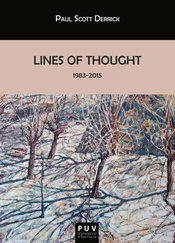Paulo Scott - Nowhere People
Здесь есть возможность читать онлайн «Paulo Scott - Nowhere People» весь текст электронной книги совершенно бесплатно (целиком полную версию без сокращений). В некоторых случаях можно слушать аудио, скачать через торрент в формате fb2 и присутствует краткое содержание. Год выпуска: 2014, Издательство: And Other Stories Publishing, Жанр: Современная проза, на английском языке. Описание произведения, (предисловие) а так же отзывы посетителей доступны на портале библиотеки ЛибКат.
- Название:Nowhere People
- Автор:
- Издательство:And Other Stories Publishing
- Жанр:
- Год:2014
- ISBN:нет данных
- Рейтинг книги:3 / 5. Голосов: 1
-
Избранное:Добавить в избранное
- Отзывы:
-
Ваша оценка:
- 60
- 1
- 2
- 3
- 4
- 5
Nowhere People: краткое содержание, описание и аннотация
Предлагаем к чтению аннотацию, описание, краткое содержание или предисловие (зависит от того, что написал сам автор книги «Nowhere People»). Если вы не нашли необходимую информацию о книге — напишите в комментариях, мы постараемся отыскать её.
Driving home, law student Paulo passes a figure at the side of the road. The indigenous girl stands in the heavy rain, as if waiting for something. Paulo gives her a lift to her family’s roadside camp.
With sudden shifts in the characters’ lives, this novel takes in the whole story: telling of love, loss and family, it spans the worlds of São Paulo’s rich kids and dispossessed Guarani Indians along Brazil’s highways. One man escapes into an immigrant squatter’s life in London, while another’s performance activism leads to unexpected fame on Youtube.
Written from the gut, it is a raw and passionate classic in the making, about our need for a home.
Nowhere People — читать онлайн бесплатно полную книгу (весь текст) целиком
Ниже представлен текст книги, разбитый по страницам. Система сохранения места последней прочитанной страницы, позволяет с удобством читать онлайн бесплатно книгу «Nowhere People», без необходимости каждый раз заново искать на чём Вы остановились. Поставьте закладку, и сможете в любой момент перейти на страницу, на которой закончили чтение.
Интервал:
Закладка:
Months have passed since that time on the beach, the woman has a name, but the name is not spoken by him very often (it’s a name that still does not fit in the apartment where he lives with Henrique and the new nanny, a name he still does not want). She, the woman, can’t decide whether to come and live with them in São Paulo, she’s asked for a bit of time to think about it, whether she is really going to leave Rio de Janeiro, the kind of life it is possible to have only there. Donato knows how to listen to her, he learns a lot from listening to her talk, she is quick and unpredictable, Henrique is not as unpredictable. Which is why it is Cássia, the personal assistant Henrique employed when they rented the Sumaré apartment, who takes him in today for his first day at pre-school. Sending him to a bilingual institution is perhaps the better and cheaper option, but by enrolling him in this one, where English is the main language and seventy per cent of the places are given to the children of foreigners living in Brazil, Henrique believes he is making sure the child will suffer less. Donato will learn English and improve his Portuguese at the same time, he will have to cope alongside other children who are also having to adapt. Henrique, his father, is not sure about this decision, but he wants the best opportunities for the son he has chosen. It wasn’t easy getting the letter of enrolment, Donato will know that one day. If Henrique had not been advising a group of north American industries with an interest in the improvement of Brazil’s patent law, a group whose spokesperson is the vice-president of the school’s parent-teacher association, it is unlikely that the headmistress would have made an exception. Of course, there are requirements, a number of requirements that are far from simple. As the admissions coordinator emphasised, the school management’s greatest fear is that Donato should end up holding back his fellow students’ progress. So they agreed that he should receive intensive coaching outside classes to compensate for his linguistic deficiencies, and at the end of May he would undergo an assessment. The word change is one of the words Donato understands best. Hardly taking into account his young age (as an Olympic gymnastics trainer would, for example, with his kids, or the teacher of a prodigy just out of nappies in search of possible musical genius), Henrique told him that a full life demands big changes, he said that everything is ready, but that the change will require commitment from them both. Donato feels his love and really tries hard to follow him. And when the taxi stops outside the school, Cássia asks the driver to wait for her, she will pay afterwards, she knows they’re late, she walks with Donato to the reception desk where there is a young woman who speaks to them in English, the welcome greeting makes Cássia uncomfortable (she is quite clever, able, but her English isn’t that good) and makes her say merely, unsure whether her Portuguese is being understood, that Donato is a new pupil. The young woman immediately starts speaking Portuguese with quite a heavy, strange foreign accent, excusing herself saying that the children there, on the whole, have a good grasp of English and it was only force of habit that stopped her from welcoming them in Portuguese. Cássia cups Donato’s cheeks with her two hands and wishes him good luck. Donato briefly smiles back at her. The girl from the school takes him by the shoulder and leads him towards the classroom. They walk along corridors. They stop outside the room where his lesson is taking place, his chaperone knocks on the door. It’s not long before there is an opening, and he sees his future classmates sitting in groups around hexagonal tables. The teacher looks at him and smiles. The young woman from reception goes in with him, the teacher has already been briefed about the particularities of this new student and, at least this time, she addresses him in Portuguese. After announcing his name to the rest of the pupils, she shows him where he is going to sit. The table she is pointing to has three children at it (it is the only table in the room that isn’t full), he doesn’t look at their faces, the one who is next to him, a girl with black skin, touches his arm and says in a French accent that her name Rener, but her nickname is Brown Sugar, he looks at her with a smile and, in Guarani, says it is good to be there, the girl also smiles and says his hair is a lovely colour. The teacher walks round handing out blank paper and crayons, the one he gets is dark grey. It is his first assignment, and he completes it easily because all he has to do is do the same as the other three at the table. The minutes fly by. Half the morning had passed and it was break time and all the children went to an enclosed playground, where there were toys that needed to be played with in twos or threes, team against team. Most of them behaved as though this was all theirs, it was their property, as though they had practised the night before or were using some kind of telepathy, because they were so exact and integrated as they coordinated their activities on the seesaws, on the slide, on the monkey bars, on the rocking beam, on the swings, on the jungle gym, and on the wireframe rockets, the same pieces of equipment that appear in the background of the photo of the whole class taken at the end of that same morning after the teacher handed them small jigsaws to assemble and stick onto a piece of card as homework (in the photo, Rener is looking straight at him, she’s beautiful, slender, completely unembarrassed; she insists that it was that day she gave him the nickname Curumim, from the Tupi-Guarani word meaning a boy, but that is not true). That morning was the closest it was possible to get to the phrase ‘group bonding’ in the whole of that year of nineteen ninety-five. It was only the following day, when the teacher handed out more complex activities to do, that he understood that it wouldn’t work simply to watch what was happening and copy it. As the weeks passed, language quickly stopped being a rarely used tool. And on the day of the assessment, overloaded with unknown words, with gaps that had no tactile equivalents, Donato understood that he needed to be exactly as his father wanted.
The end of the year. Lada Niva is the make and model he most likes to say, followed by the Fiat Uno, the Saab Scania, Toyota Bandeirantes and a long and varied list of other names almost all of which are compound nouns connected to the inexhaustible world of the automobile. Besides these, he likes words like fireman, pilot, lifeguard — this latter, as it happens, printed in yellow on the back of the red t-shirt he is currently wearing as he and Henrique are on their way to Guarulhos airport to meet the woman. They are on the Tietê riverfront road, one of the few places that make him less impressed by the things shown on television, it’s almost his favourite place in São Paulo. Countless vehicles with endless differences that make him demand from Henrique the proper names and the proper updates to the models (about five minutes ago it was the Maserati, seen for the first time), all taken in as fast as the quick-fire answers given to the questions that he himself takes on the task of asking. This is the greatest proof that he has integrated perfectly into his new life. Comfortable being Version boy: upper-middle class, são paulo devoted body and soul to his collection of Matchbox and Hot Wheels miniatures. Today is the first day of his summer holidays. He feels proud because Henrique, as though speaking to an adult, told him at breakfast that all his expectations as regarded his school performance had been achieved and so, next year, he would be staying on in the same school. This is good, because that girl is there, Rener, who of all his classmates inspires him with the greatest confidence about what to say, how to speak. Because he has merited it by his own efforts (this was the expression Henrique used), they would spend the rest of the morning at that bookshop, Paulista, for him to choose two books. Henrique was not explicit as to the language, but Donato knew what his father expected of him. He chose one in Portuguese, one in English. Donato understands the enormous dedication shown by Henrique, his father Henrique, to making the two of them a family. At school the older teachers talk quite a lot about family and about God (the word God troubles him less than the word family). In the drawings he does, it is only him and Henrique. Donato likes to draw someone holding his left hand. Starting from today he knows that he can draw the woman, she will be the one holding his left hand. Donato hopes he will be able to draw her a lot, to draw her forever, he hopes that she makes an effort (as much as the two of them) to get a very good or an excellent , just as he has managed to get in almost all his assignments at school. Donato understands the enormous dedication shown by Henrique. Donato understands Henrique and, most of the time, he tries to pre-empt his actions so as not to disappoint him. The first and only time he responded with aggression to a classmate, he was taken to the office of the headmistress, who told him, ‘You are lucky to have been taken in by someone as good as senhor Henrique’; she told him that undisciplined attitudes like Donato’s would only disappoint him. Disappointment is a word Donato does not like, but it helps him to understand the world all the same, even more than other words that are better to say. Disappointment justifies words like careful , a word he relates to Guarulhos (the name of the airport, which comes from the Guyanese tribes, that is what Henrique explained to him before they set off in the car today after the bookshop). Guarulhos is a word Donato likes, but he finds it a bit strange, a bit heavy in his mouth, like another word he found strange the other day, though not as heavy, the word anaphylactic , which he tried to say but could not. Henrique then insisted that he try again. He tried and couldn’t do it, and Henrique articulated the word with measured care. He tried again and couldn’t. This was not the first time he pressed him to get it right, to correct himself and say a word that was interrupted or not even begun. In situations like these Donato feels like he is playing pick-up sticks on his own, and in this game he is not allowed to be defeated, and yet he will never be allowed to win. Over the summer, when they are spending more time together (and because this time the woman will be there as a spectator, a spectator you can count on to be a spectator), Henrique will require of him, and with some rigour, the correct pronunciation of words in Portuguese and in English and, later, when March comes around, speaking with fluency and precision will be an absolute duty for Donato, enough of this childishness , he will say to himself in that way he has, and years later it will be like juggling. In Guarulhos they find a space in the car park easily. When they reach the arrivals area they learn that the flight is expected to land half an hour late. Donato takes his father’s hand, Henrique is his father, and squeezes it. And when he gets his attention, albeit only briefly, he says — as though they were exploding in his mouth — he says the words he had not been able to pronounce on the way, he pronounces them in sequence, one, two, three times, defeating an opponent who will never be in his imaginary game of pick-up sticks, offering his response to Henrique’s dedication that they should be a family, like the family the older teachers teach at school.
Читать дальшеИнтервал:
Закладка:
Похожие книги на «Nowhere People»
Представляем Вашему вниманию похожие книги на «Nowhere People» списком для выбора. Мы отобрали схожую по названию и смыслу литературу в надежде предоставить читателям больше вариантов отыскать новые, интересные, ещё непрочитанные произведения.
Обсуждение, отзывы о книге «Nowhere People» и просто собственные мнения читателей. Оставьте ваши комментарии, напишите, что Вы думаете о произведении, его смысле или главных героях. Укажите что конкретно понравилось, а что нет, и почему Вы так считаете.












